Dr Sanja Petrović is the Head of Department for Environmental, Economic and Power System Studies in the company Energoprojekt ENTEL, a regular member of RES SERBIA, and thus a member of Green Women’s Network, a working body of the Association, whose aim is to enhance the participation of women in the renewable energy sector.
The Association RES SERBIA, with the support of the Embassy of Canada in Serbia and Montenegro, is implementing the project “The road to greater participation of women in the sector of renewable energy”. We start this promotional campaign with the professional and life story of Dr Sanja Petrović, who graduated and received her doctoral degree from the Faculty of Mechanical Engineering at University of Belgrade, and completed her Master’s degree of Applied Science at McMaster University in Hamilton, Canada. She has been employed with Energoprojekt Entel for nearly two decades, heading the Department for Environmental, Economic and Power System Studies within the last nine years. As an expert environmental engineer, she contributed to the implementation of ČIBUK 1 Wind farm project, the largest onshore wind farm in Serbia, and is also involved in the construction of Wind Farm KOSTOLAC, the first state-owned wind farm. This gives sufficient reasons to open a series of articles on successful business women, starting with her personal and professional story. It is therefore appropriate to begin this interview with the question why she chose Canada for her further academic development:
– Why Canada? There are many reasons. One of the main was the fact that Canada is a country that, at the time when I was completing my basic studies at the Faculty of Mechanical Engineering in Belgrade, offered fantastic opportunities for continuing education in the field of engineering, with a number of scientific and research programs that were carried out in cooperation with the business sector, and very often just initiated by the companies striving to introduce certain improvements and innovations into their production processes. That concept of research work, in terms of its practical and specific application, was particularly attractive to me, bearing in mind that in Serbia then, and I can’t say that it is significantly different now, there was very little practical work at the faculties; primacy was given to the study of fundamental scientific postulates and, in general, theoretical work. This is of course closely related to the allocation of financial resources, which are necessary for the implementation of any scientific research or experimental work, and which Serbia has always lacked. Therefore, my departure to Canada began with curiosity and youthful ambition, by sending applications to several Canadian universities and receiving an offer for master’s studies and research work in the field that fascinated me from the very beginning, and which was related to the study of Marangoni convection heat transfer phenomena, which could have its potential application in the microgravity environment, that is in space. It sounds a bit naive now, but then it seemed like a way to realize a childhood dream of travelling to and exploring space, representing something bigger, grander and more impressive than anything else that we have on Earth. And so McMaster University in the Canadian City of Hamilton, near Toronto, otherwise internationally recognized for the top quality of its engineering studies, received a new scholarship holder in the field of thermal processing and fluid flow studies.
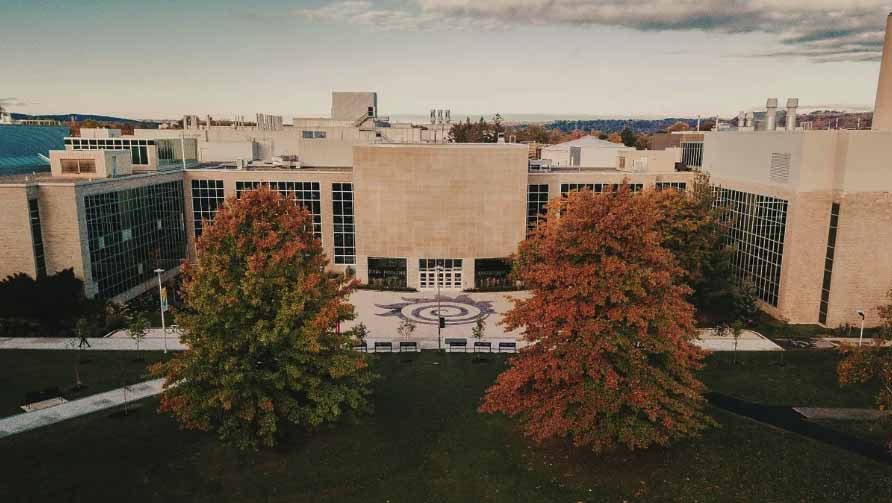
Apart from classical concept of master studies, based on attending classes and passing the exams, the concept of my research based programme also included a need for an original experimental work to be conducted. This included design and construction of appropriate apparatus and experimental investigation that would allowed me to eventually translate my findings into a suitable master’s thesis. This experimental work was a new and, at times, very stressful experience for me, since it required skills that I had not mastered until then, challenges that I had not faced, and which implied coping with various unpredictable situations that you encounter during laboratory research. Naturally, there were also a lot of anecdotes that today, seen from this perspective, make the memories incredibly valuable. Activities in the foregoing master’s program also included my engagement as a Teaching assistant at the Faculty of Mechanical Engineering which provided me an opportunity to collaborate directly with students on understanding the heat transfer phenomena, conducting demonstrative experimental exercises, and checking the students’ knowledge. I genuinely enjoyed working with inquisitive young minds who were genuinely impressed by the demonstrations of various heat transfer phenomena they had the opportunity to see. In that way, Canada was for me in the engineering sense a window into the practical application of previously acquired knowledge, bringing me one step closer to an engineering way of thinking and practical solving of engineering issues. It was wonderful to work at the faculty providing access to state-of-the art equipment and to enjoy collaboration with colleagues from different parts of the world. In the human sense, Canada also affected me in a wonderful way, allowing me to witness first-hand that Canadians are benevolent, optimistic and curious, open to meeting people of different origins and cultural heritage, with a smile ready for everybody around them. They are great admirers and lovers of nature, which is to be expected considering the natural beauty that Canada is known for. Autumn scenes and wonderful pictures of nature that changes with the turn of seasons remain in my memory to this day. During my stay, I only had an opportunity to visit Ontario, but I also heard a lot about other parts of the country that I intend to visit in he future, when the opportunity arises and when things work out.
As a young woman, how did you decide to study Mechanical Engineering, which is not so often a girls’ first choice?
– To be honest, mechanical engineering was not my only choice at the time, it was more a combination of circumstances at a given moment in life. I considered a wider range of options when deciding in which direction to go further with my education, including architecture, journalism, mathematics and electrical engineering. Quite extensive and contrasting, I admit, which in some way, perhaps, also reflects my nature that always strives for versatility, broader perspectives, never just a single option. However, in the end, the love for mathematics, but also the desire to acquire some practical knowledge that could perhaps be of importance in a later professional career, was what brought me to the decision to study mechanical engineering. It is true that there were not many girls at the faculty back then, but that has changed significantly over time. Today, mechanical engineering is not only associated with production engineering, machines and metal processing tools and items that are traditionally related with the stronger sex. On the other hand, our society has also changed, or at least I hope that we have made significant progress in that direction, the gender divide is no longer as pronounced and troubling as it was before. At the Faculty of Mechanical Engineering, as well as at other technical faculties, today there is a large number of elective subjects that future colleagues can choose from, all according to their affinities or plans, thus pointing their education towards direction they think is right. What is also important is the later career path they take, which may be significantly different from the basic, academic one. Look at my example: after completing my basic studies in the field of thermal engineering and the foregoing master’s degree in the fundamental fields of heat transfer, my first post-graduation job took me into an area of environmental protection that I never thought I would pursue. At that time, the field of environmental protection was not as developed, as important, as well recognized as it is today. While today all technical faculties have majors that study this important area of ecology, it was really rare twenty years ago. So I took my pioneering steps in the world in which I have reminded until today after completing my studies, dealing with impacts of power generation and transmission facilities on the environment, identifying measures aimed at reducing pollution levels and maintaining it within the prescribed regulatory limits. I am glad that today environmental protection is a well-recognized term among the general public, which I consider to be a good start for paving the path to a brighter and healthier future. However, it is of crucial importance that our everyday behaviour is always directed towards achieving a cleaner and healthier environment. I am a firm supporter of personal responsibility in everything we do and I think that we should work even more with the young generations to stress the importance of personal choices in everyday life and the cumulative effect of individual activities that will lead a society to a better and healthier future. Serbia still has a lot to do in that field, although I think the situation is improving.
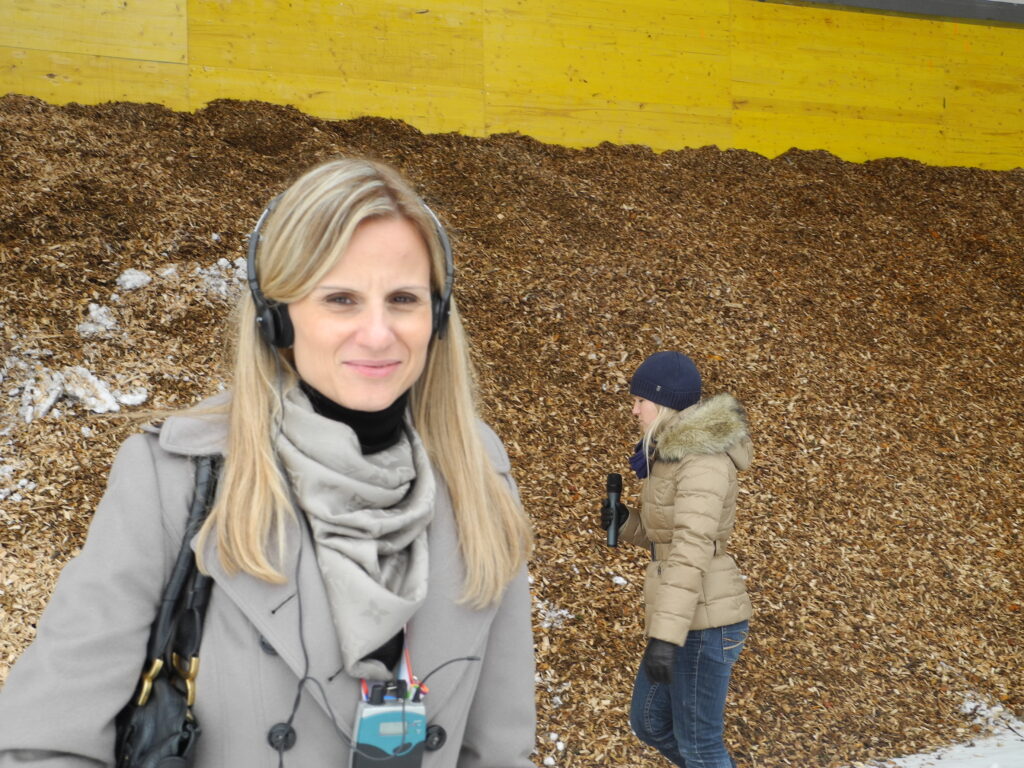
You have also received your PhD degree from the Faculty of Mechanical Engineering in Belgrade?
– My PhD studies were a reflection of my intention to round off my educational path, and to step further into the field of ecology, ecological fuels and renewable energy sources. As a thermal power engineer by education, I chose to investigate possible energy and environmental improvements to pellet stoves and boilers, representing small heating units appropriate for use in the consumer sector and a good option for replacing less efficient and less environmentally favourable individual heating devices used in Serbia. I returned to the laboratory again and in cooperation with my mentor, professor Dragoslava Stojiljković from the Faculty of Mechanical Engineering in Belgrade, a wonderful lady and a reputable expert in the field of biofuels, I successfully completed this endeavour. The period of PhD studies was a very challenging period in my life, because together from my research work, I had to juggle various other business and family obligations. Now that I look back, I consider what was accomplished a significant personal success, which, I must admit, was not easy to achieve.
What projects in the field of renewably energy sources were you engaged on in Serbia?
– As someone who has been dealing with environmental protection issues for almost twenty years, my professional involvement was naturally more oriented towards large polluters, which are definitely thermal power facilities. In addition, energy efficiency issues, which I also dealt with intensively, represented a natural complement to environmental issues, since the rational use of energy in Serbia remained an issue without the right outcome to this day. I was a member of team that worked on the training of the first group of municipal energy managers in Serbia, and what I am particularly pleased about, I actively participated in the SEEP (Serbian Energy Efficiency Project) project, which facilitated 90 schools, health care institutions and social care institutions across Serbia to underway energy refurbishment. The mentioned project, financed by the World Bank, remains to this day one of the largest energy efficiency projects implemented in our country.
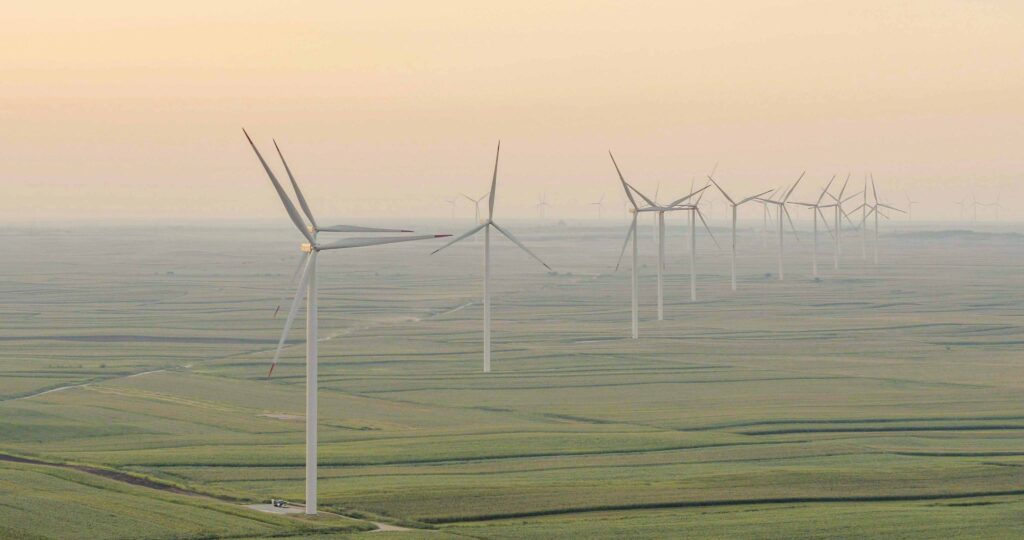
My engagement in environmental aspects of building renewable energy facilities started in 2004, when we first analysed possible construction of a wind farm in Vlasina region, in eastern Serbia. I also need to mention environmental considerations associated with construction of Wind Farm ČIBUK in Kovin region which, with its 158 MW of installed capacity, remains the largest wind farm built to date in Serbia. Currently, activities are underway for the construction of Wind Farm KOSTOLAC, which will be the first wind power plant owned by the Electric Power Industry of Serbia (EPS), and therefore the first power plant based on renewable energy sources built by this public utility company.
For close to 10 years, I have been the Head of the department within which not only environmental but also economic and power system related aspects associated with construction and integration of new power generation units are considered. In this way, my associates and I have the opportunity to analyse almost all key elements affecting the investor’s decision weather to implement an energy project or not. I do not undermine the importance of technical aspects of such decisions, but today it seems that from the technical point of view almost any challenge can be resolved, in one way or another, the only question remaining is at what cost.
Women do not dominate the energy sector, not even in the sector of renewable energy sources. Have you ever felt inferior in your job because of your gender?
– An interesting and important question. I have to admit that as a young woman I had negative experiences during job interviews early in my career when I had to deal with inappropriate comments from potential employees that the education path I had chosen was not something that ladies should pursue since it was a field more suitable for men. Such comments have an extremely bad effect on a young person’s self-esteem and are, I must say, a malicious way to discourage a young woman. It seems to me that this inequality was more pronounced when we had the dominance of conventional power engineering, based on coal as the main energy source, which was considered dirty technology and, in people’s minds, was traditionally associated with jobs intended for men. On the other hand, it seems to me that the situation is quite different in the renewable sector, especially wind and solar power plants, because energy generation technologies are cleaner, and therefore the perception of the general public is less prone to generalization regarding the expected participation of one of the sexes. The mentioned difference can certainly be seen in the business world, where very often we meet women as developers of renewable energy projects, while this is almost never the case when it comes to conventional power generation units.
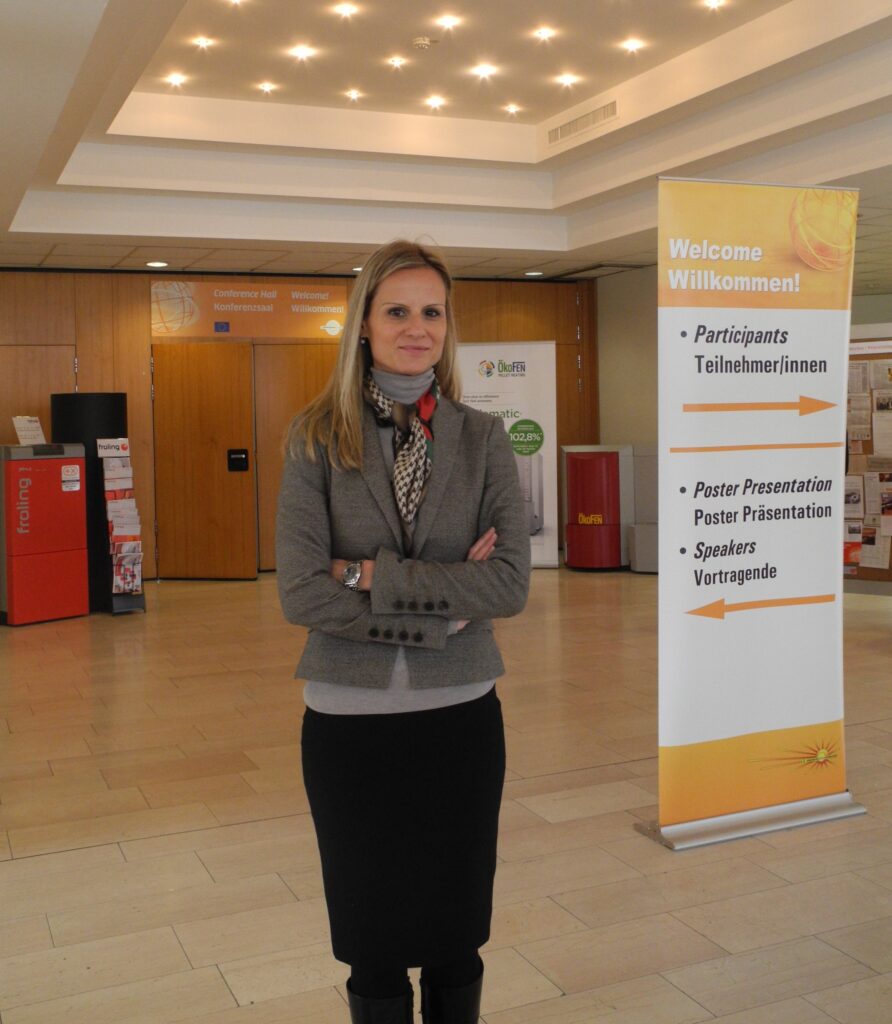
On a personal level, it is a great pleasure to work in a team that fosters gender equality. In Energoprojekt Entel, the company where I work, which deals with both conventional and renewable power plants, there are a large number of women in top management. I think it’s fantastic and that it sets a good message to young female colleagues that they can plan their career path freely, knowing that there will be no barriers based on gender gap issues. The fact that there is a number of gender equality initiatives in Serbia today, including the OIE Association’s initiative to establish the Green Women’s Network, speaks in favour of the fact that the topic is still highly relevant and that we have not yet reached the stage when gender equality will be a normal and usual part of social order that will be taken for granted and that will not require special consideration or promotion.
How would you encourage young women to enrol in some of the technical faculties that will lead to engineering degrees and jobs in the energy sector?
– I think that girls who want to study in a technical field do not need encouragement. I believe that they are all self-confident young ladies who are good at natural sciences and who are aware of the fact that studying technical sciences is not easy, that it requires a lot of work and persistence, but that it also brings a feeling of great satisfaction when studies are successfully completed. We should not forget that professional engagement in a vitally important infrastructural field such as energy enables all participants to be part of important global story, to collaborate with colleagues from around the world, because energy is not a topic of local character, but a global challenge that we will face together in the decades to come, particularly in the light of climate change and efforts to preserve the today’s way of life. In this regard, there are great opportunities for career development in the energy sector, where we always have a shortage of experts and sincere enthusiasts dedicated to sustainability and environmental protection. The ambitious goals adopted by Europe and other parts of the world in terms of achieving carbon neutrality by 2050 certainly indicate that large investments can be expected in the energy sector, which for young people means a possibility for stable career and work on interesting and challenging projects. It should be emphasized that working in the energy sector gives young female colleagues the opportunity to deal with a vitally important economic sector, which is the engine or brake of all other economic activities, which we become especially aware in moments of energy shortage.
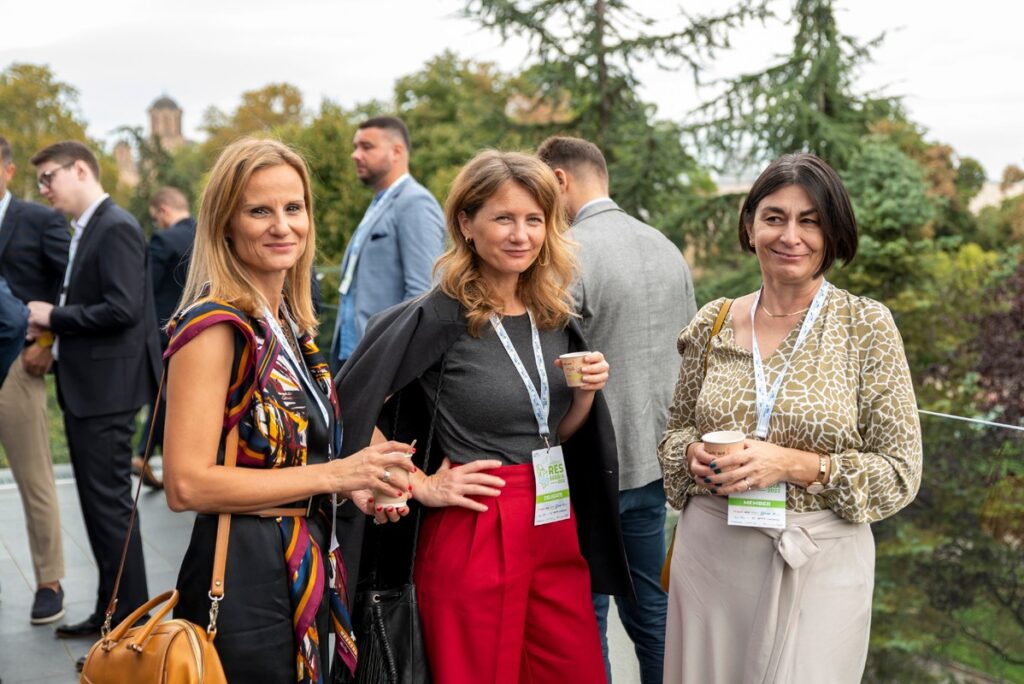
In recent years, have you seen an increased interest of young women in the energy sector and RES, or do you think that we should all work more to improve gender equality and the participation of women in the energy sector, especially RES?
– I would say that in recent years there has been a noticeable increase in the interest of young female colleagues in the field of energy, but it seems that this is more a result of the actuality of the topic itself, rather than a consequence of some specific activities for greater involvement of young women in the sector we are addressing. I believe that all activities aimed at the better position of women in our traditionally patriarchal society are necessary and justified, and I will always support them unreservedly and contribute to their realization. But, on the other hand, it is up to us women to justify the trust shown with the work quality and professionalism, because we are fighting for equal, not privileged status, for just, and not privileged chances to show the power of our intellectual capital. And bearing in mind that knowledge represents the most important capital in the modern days of creating material values, it is clear that we are returning back to the well-known fact that by investing in knowledge, we are investing in a sustainable future. Bearing in mind that in both today’s and the future world of digitalization and automatization of production processes, intellectual skills will be the greatest value, it can be expected that gender issues will become less important; those who have better ideas and ways for their implementation will win the market competition, regardless of their gender. I have no doubt that under such circumstances the ladies will show that they are up to the task, taking advantage of opportunities in front of them. They must be brave, dedicated, determined and believe that the future is in their hands. I look forward to it, and in advance I am proud of every success of my female colleagues based on knowledge, effort and commitment to road which will lead us all to a better future.


